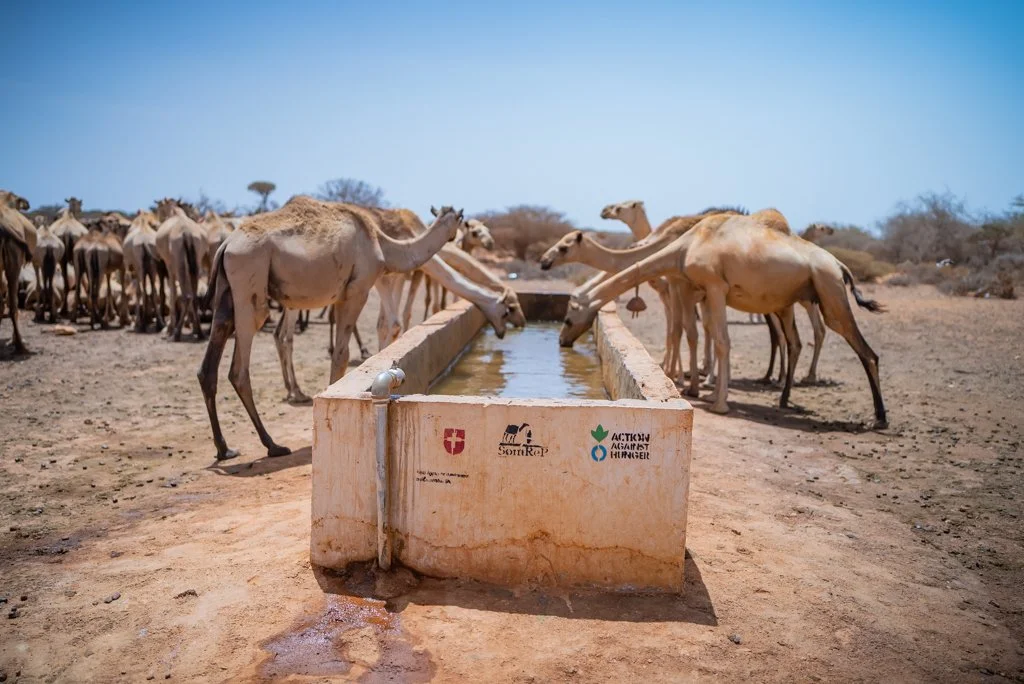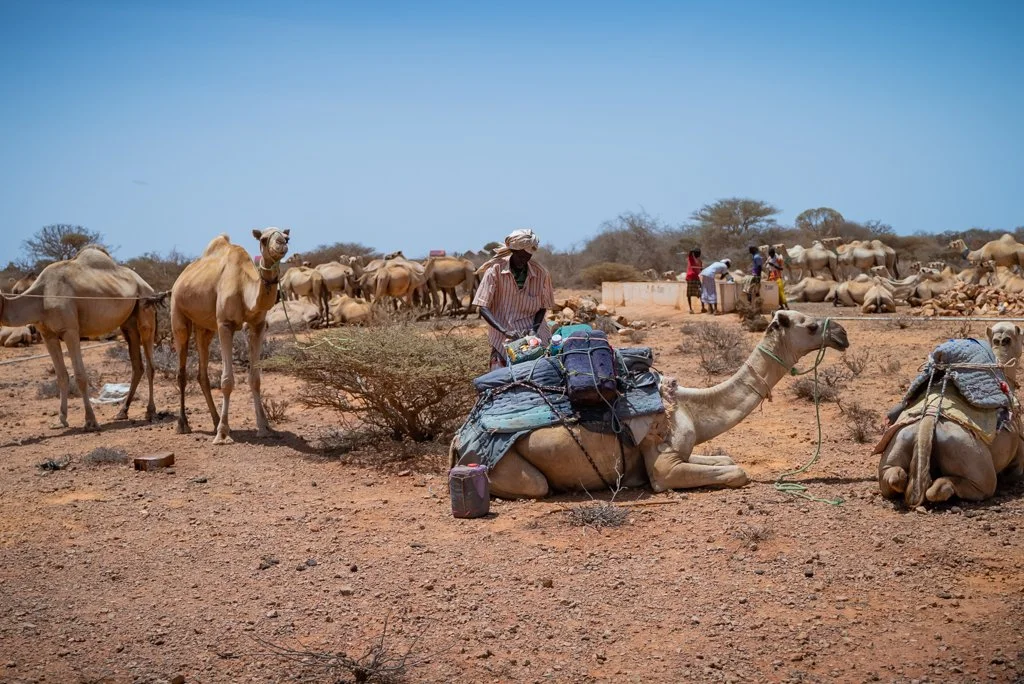From Scarcity to Hope in Diilin Village, Puntland
Water scarcity had long been a severe challenge for pastoral communities in Eyl district, where livestock-based livelihoods form the backbone of economic and cultural life. In Diilin Village, located in the eastern part of Puntland State, Somalia, the problem was particularly acute. The village’s rugged terrain, minimal infrastructure, and poor road access made the struggle for water even harder.
Home to approximately 1,400 pastoralist households, Diilin relied heavily on seasonal rainfall collected in reservoirs and water trucking from neighboring areas. During the dry seasons, families were forced to migrate to distant regions in search of water, disrupting their livelihoods and impacting children’s access to food and education.
Recognizing this urgent need, the Somali Resilience Program (SomReP), through Action Against Hunger and with funding from SDC, drilled a water borehole at the heart of the community. The project transformed life in the village, providing a reliable, year-round water supply and freeing the community from its dependence on unpredictable rainfall.
“The borehole is a big blessing for us. This village was so dry, and water came from far away once our reservoirs dried up. We had difficulty finding water for ourselves and our livestock”
Figure 1: aerial view of camels drinking water from the Diilin borehole in Eyl
Initially, this borehole was operated on a diesel-powered engine, which made accessing water expensive. Herders paid $10 to water 100 camels, while water tankers were charged $12 per fill. For families already struggling, these costs were a significant burden.
The shift to solar-powered infrastructure, however, brought immense relief. Water fees were reduced by half—herders now pay just $5 for 100 camels, and water tankers are charged $7 and the best thing is the borehole is in their own village. The water tariffs collected from the community are managed by the water committees and are used to cater for operations and maintenance needed by the borehole.
Household consumption through community taps is provided free of charge, ensuring vulnerable families have access to clean water without added financial strain.
This improved access has brought significant benefits to the pastoral community. The health and productivity of livestock have visibly improved, thanks to consistent clean water. With healthier herds, families are seeing increased milk production and better breeding outcomes, boosting both food security and income
“The borehole drilling arrived amid a challenging period of low rainfall and drought. We bounced back and made it through the challenging period”
Figure 2: A pastoralist Opening water for his camels.
Beyond livestock, the borehole has opened doors to economic diversification.
Many families now rear small livestock, such as goats and poultry, improving both their food supply and household income. Women in particular have benefited—several have started small cooking businesses near the borehole, enhancing their financial independence and supporting their families. With time saved from fetching water, children are able to attend school regularly, fostering higher literacy rates and brighter futures.
The borehole is operated and maintained by a volunteer water management committee trained in system upkeep, including solar maintenance. Their dedication has been critical to the project’s success. During the prolonged drought from 2020 to 2023, the pump failed under heavy use. Undeterred, the committee mobilized the community to fundraise for repairs and, when local resources fell short, successfully engaged government officials for additional support. Their persistence led to the restoration of borehole operations, underscoring the importance of local leadership and resilience.
The borehole in Diilin Village is more than just a water source—it is a symbol of transformation and hope. It has strengthened the community’s ability to withstand challenges while creating new opportunities for growth and development.
As families thrive, livelihoods diversify, and children return to school, water has become the foundation for a brighter and more hopeful future.
For Diilin Village, the future is brighter, and water scarcity no longer dictates the rhythm of life.
A pastoralist is loading water onto his camel with the aim of transporting it to his home in the remote villages of Diilin



